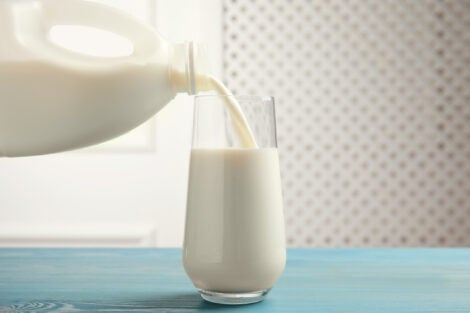February 22, 2024—For those who eat a balanced diet, drinking milk isn’t necessary for good health, according to Harvard T.H. Chan School of Public Health’s Walter Willett and Jorge Chavarro.
Willett and Chavarro, professors of nutrition and epidemiology, were quoted in a February 20 Washington Post article about when it’s important to drink milk—and when it’s not.
Willett acknowledged that milk is a “complete food” that can fill nutritional gaps, especially in places around the world where the majority of people’s diets are starchy foods like corn or rice. But for people eating a healthy diet, milk isn’t needed for nutrients like calcium, which can also be found in foods such as beans, vegetables, whole grains, fish, nuts, seeds, and tofu.
For those concerned about their calcium intake, Willett recommends taking a daily supplement containing 500 milligrams of calcium as well as 600 international units of vitamin D. But, he noted, “If someone has a good diet then they probably don’t need a supplement”—or milk.
Chavarro discussed the notion that drinking milk makes children grow taller. “The effect appears to be more pronounced when there’s very deficient nutrition than in other settings,” he said. For kids who don’t get enough nutrients, milk can make a difference to growth; for those able to eat healthfully, “it’s not going to make [them] super tall.”
Read the article: How much dairy milk do children and adults really need?
Photo: iStock/Liudmila Chernetska
